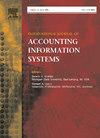在外部审计中探索大型语言模型:影响和道德考虑
IF 6
3区 管理学
Q2 BUSINESS
International Journal of Accounting Information Systems
Pub Date : 2025-06-05
DOI:10.1016/j.accinf.2025.100748
引用次数: 0
摘要
本研究探讨了大型语言模型(llm)对外部审计的影响及其相关的伦理含义。我们对来自非四大会计师事务所的审计师进行了一项小规模调查,以评估他们对法学硕士的总体看法,随后对外部法学硕士在审计特定任务中的表现进行了定性评估。在后者中,ChatGPT对审计相关场景的响应由经验丰富的审计合作伙伴进行评估,他们在不知道其来源的情况下对输出进行评级和评论。研究结果表明,虽然法学硕士可以有效地完成日常和平凡的任务,如生成类似人类的响应和准备基本的审计工作文件和报告,但外部法学硕士很难生成全面的审计特定报告。非四大会计师事务所认可llm在审计规划方面节省时间的潜力和相关性;然而,对于外部法学硕士产生的风险评估和审计标准解释的全面性和上下文相关性的担忧仍然存在。此外,外部法学硕士固有的局限性,如过时的信息和幻觉,需要审计师的监督。确定的道德问题包括对审计师客观性、保密性、隐私性、问责制和知识产权的威胁。该研究强调,虽然法学硕士可以提高审计效率,但他们应该补充而不是取代审计师。它们在外部审计中的成功集成需要及时的工程、法规指导和审计人员的监督。这些发现有助于对审计法学硕士的研究,并为考虑采用法学硕士的审计公司提供见解。本文章由计算机程序翻译,如有差异,请以英文原文为准。
Exploring Large Language Models in external audits: Implications and ethical considerations
This study explores the impact of Large Language Models (LLMs) on external audits and their associated ethical implications. A small-scale survey was conducted with auditors from non-Big Four firms to assess their general perceptions of LLMs, followed by a qualitative evaluation of external LLMs in audit-specific tasks. In the latter, ChatGPT’s responses to audit-related scenarios were assessed by experienced audit partners, who rated and commented on the outputs without knowing their source. The findings indicate that while LLMs efficiently perform routine and mundane tasks such as generating human-like responses and preparing basic audit working papers and reports, external LLMs struggle to produce comprehensive, audit-specific reports. Non-Big Four auditors recognise LLMs’ time-saving potential and relevance in audit planning; however, concerns persist regarding the comprehensiveness and contextual relevance of external LLM-generated risk assessments and interpretations of auditing standards. Moreover, limitations inherent in external LLMs, such as outdated information and hallucinations, necessitate auditor oversight. Ethical concerns identified include threats to auditor objectivity, confidentiality, privacy, accountability, and intellectual property rights. The study reinforces that while LLMs can enhance audit efficiency, they should complement rather than replace auditors. Their successful integration in external audits requires prompt engineering, regulatory guidance, and auditor oversight. These findings contribute to the growing research on LLMs in auditing and provide insights for audit firms considering their adoption.
求助全文
通过发布文献求助,成功后即可免费获取论文全文。
去求助
来源期刊
CiteScore
9.00
自引率
6.50%
发文量
23
期刊介绍:
The International Journal of Accounting Information Systems will publish thoughtful, well developed articles that examine the rapidly evolving relationship between accounting and information technology. Articles may range from empirical to analytical, from practice-based to the development of new techniques, but must be related to problems facing the integration of accounting and information technology. The journal will address (but will not limit itself to) the following specific issues: control and auditability of information systems; management of information technology; artificial intelligence research in accounting; development issues in accounting and information systems; human factors issues related to information technology; development of theories related to information technology; methodological issues in information technology research; information systems validation; human–computer interaction research in accounting information systems. The journal welcomes and encourages articles from both practitioners and academicians.

 求助内容:
求助内容: 应助结果提醒方式:
应助结果提醒方式:


